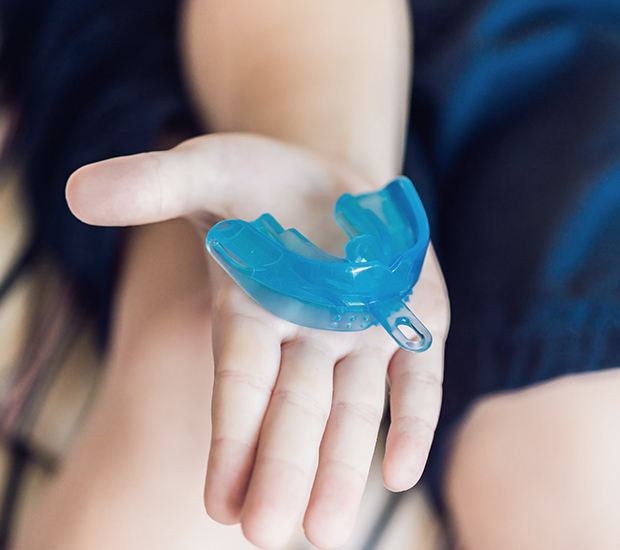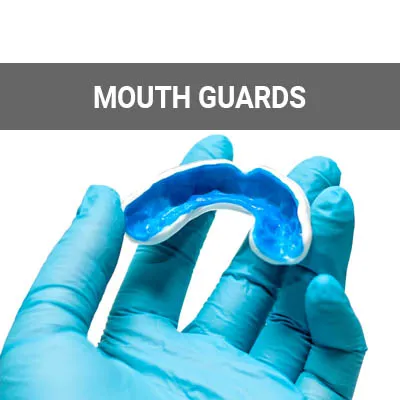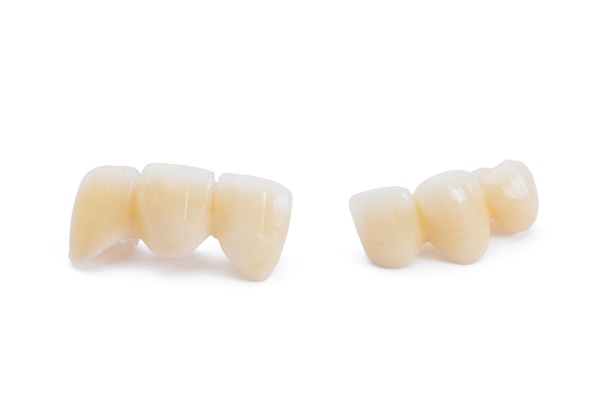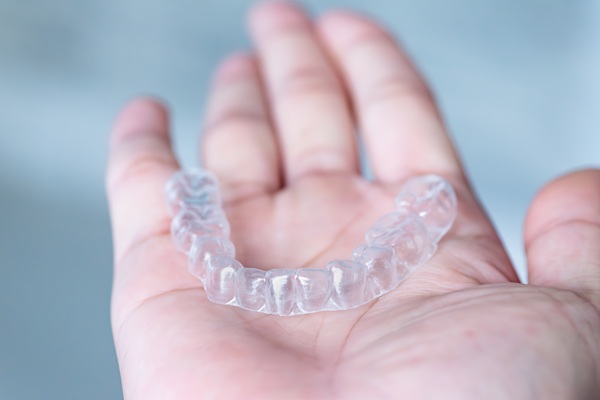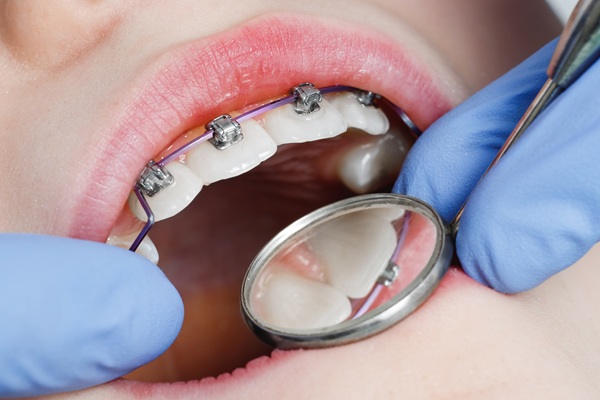Night Guards Quincy, IL
Night guards prevent your teeth from clenching and grinding in your sleep. This condition is known as sleep bruxism, and it affects millions of people every day. It can also help protect against temporomandibular joint disorders. Night guards can help prevent irreversible tooth damage.
Night guards are available at Buffalo Prairie Dental in Quincy and the surrounding area. Protect your teeth even in your sleep. Call us today at (217) 334-4312 to schedule an appointment or learn more about our services.
Mouth Guards vs. Night Guards
Many patients wonder about the difference between mouth guards and night guards. These devices indeed serve a similar purpose. Mouthguards protect teeth during physical activities like football or boxing. Dentists often recommend mouthguards to athletes and active adults.
Night guards protect against bruxism, or grinding and clenching the teeth during sleep. Nighttime teeth grinding can cause severe dental damage. Over time, grinding one's teeth can destroy the enamel and trigger gum erosion. Without treatment, the damage can progress, and some patients may need dental surgery. Night guards can help protect bruxism patients from permanent dental damage.
How Often to Wear Your Night Guard
It is vital to wear a night guard consistently to protect against tooth damage. Wearing a night guard on an irregular schedule offers minimal protection. Most patients can expect to wear their devices every night.
Night Guards and Braces
Even patients with braces can still benefit from a night guard. Modern night guards fit over braces and other dental appliances. Our team creates a custom-fitted night guard that works alongside any other dental treatments.
“Night guards can help protect bruxism patients from permanent dental damage.”
Night Guards as a Dental Treatment
Bruxism
Bruxism is a common condition that affects up to 10% of Americans. People with bruxism unconsciously grind their teeth or clench their jaw. Often, this tooth-grinding occurs during the night. As a result, many people with bruxism are unaware that they have the condition.
Over time, bruxism can lead to serious dental problems. Night guards help protect the teeth by easing pressure in the jaw. These devices also guard the teeth against chips and uneven wear patterns that often result from jaw clenching.
TMJ
The temporomandibular joint (TMJ) connects the jaw to the skull. Nighttime grinding or clenching often lead to TMJ disorders, including stubborn headaches and neck pain. Night guards are a simple method for preventing or treating TMJ problems.
Sleep Apnea
Sleep apnea develops when patients stop breathing for brief periods during the night. Airflow may become blocked due to the placement of the jaw and tongue. Night guards can align the jaw, relieving some sleep apnea symptoms and preventing life-threatening health complications.
“Night guards help protect your teeth by easing pressure in the jaw.”
Benefits of a Night Guard
Clenching and grinding can destroy the tooth enamel. Patients may be at a higher risk for cavities, tooth sensitivity, or gum erosion during their lifetime. People with bruxism can also develop unsightly chipped teeth or muscle tension.
These symptoms can lead to cosmetic dental issues and have a significant impact on the quality of life. Many people who grind their teeth report headaches, neck pain, and restless sleep. Night guards may allow affected individuals to sleep more soundly.
“Night guards may allow affected individuals to sleep more soundly.”
Check out what others are saying about our dental services on Yelp: Night Guards in Quincy, IL
Types of Night Guards
Many patients are intimidated by the prospect of wearing a night guard because they mistakenly believe it will look clunky and unnatural. However, today's night guards consist of translucent acrylic, making them virtually invisible.
According to the American Sleep Association, there are three basic types of night guards: soft night guards, dual laminate night guards, and hard night guards. Soft night guards are the most frequently used type of night guard for mild or occasional bruxism. It offers the most comfortable fit, and it is the easiest to get used to.
Dual laminate night guards are designed for patients with moderate to severe bruxism. They offer the "best of both worlds" — soft on the inside and hard on the outside. As such, they can endure heavy clenching and grinding.
Finally, hard night guards are suitable for even the most severe cases of teeth grinding and TMJ disorder. These night guards prevent the teeth from shifting. All these night guards are best ordered directly through a dentist for the most accurate fit.
“…today’s night guards comprise translucent acrylic, making them virtually invisible.”
Questions Answered on This Page
Q. What conditions do night guards treat?
Q. What are some benefits of a night guard?
Q. What are the different types of night guards?
Q. How can I care for my mouth guard?
People Also Ask
Q. Who is a good candidate for a mouth guard?
Q. What makes custom-fitted mouthguards better?
Q. What lifestyle choices help promote good oral health?
Caring for a Night Guard
Night guards are an integral part of one's oral health regimen. They require the proper care and respect to last as long as possible. Neglecting night guards can cause bacteria to multiply, causing bad breath or infection. As such, proper care is necessary.
Fortunately, cleaning one's night guard is quick and easy. Patients have many options — toothpaste, soap and water, mouthwash, baking soda, and hydrogen peroxide and vinegar are all sufficient ways of cleaning a night guard. It is also important to soak the night guard whenever it is not in use during the day.
“Neglecting night guards can cause bacteria to multiply, causing bad breath or infection.”
Frequently Asked Questions
Q. Do I need to wear a night guard on both the upper and lower teeth?
A. No. Many patients choose to wear a night guard only on the upper teeth. Buffalo Prairie Dental can help you determine which is the best fit for you during a one-on-one consultation.
Q. How long will my night guard last?
A. The answer varies on a case-by-case basis. Night guards can typically last anywhere from six months to a few years. Patients with minor teeth grinding can typically expect their night guards to last longer.
Q. Do I need to take impressions for both the upper and lower teeth?
A. Yes. This allows us to ensure the most comfortable fit for your night guard. To best protect your teeth, we must account for how they naturally come together.
Q. Do night guards cure bruxism?
A. No. Unfortunately, there is no known cure for bruxism. However, night guards can protect the teeth against its effects.
Q. How can I tell if I have bruxism?
A. It can be difficult to tell if you grind your teeth in your sleep, especially if you live alone. However, there are some telltale signs. These include waking up with headaches, dull tension headaches, chipped or loose teeth, increased tooth pain and sensitivity, and more. If you find yourself experiencing any of these symptoms, let your dentist know immediately.
Dental Terminology
Call Us Today
Millions of Americans struggle with tooth grinding and clenching. These problems can lead to jaw pain, tooth misalignment, and restless slumber. A customized night guard protects your teeth and helps you enjoy a restful night's sleep.
Do not let conditions like bruxism destroy your oral health. Let Buffalo Prairie Dental in Quincy help you choose a night guard. Call us at 217-334-4312 to schedule an appointment.
Helpful Related Links
- American Dental Association (ADA). Glossary of Dental Clinical Terms. 2024
- American Academy of Cosmetic Dentistry® (AACD). Home Page. 2024
- WebMD. WebMD’s Oral Care Guide. 2024
About our business and website security
- Buffalo Prairie Dental was established in 2019.
- We accept the following payment methods: American Express, Cash, Check, Discover, MasterCard, and Visa
- We serve patients from the following counties: Adams County, Brown County, Marion County and Lewis County
- We serve patients from the following cities: Quincy, West Quincy, Taylor, Payson, Camp Point, Mendon, Mt Sterling and La Grange
- National Provider Identifier Database (1750440632). View NPI Registry Information
- Norton Safe Web. View Details
- Trend Micro Site Safety Center. View Details
Back to top of Night Guards
